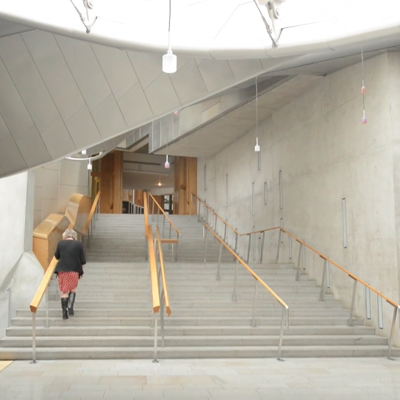Public policy highlights March 2020
Our policy committees have had a busy month analysing and responding to proposed changes in the law. We do this to positively influence the creation of a fairer and more just society through our active engagement with the Scottish and United Kingdom Governments, Parliaments, wider stakeholders and our membership.
You can read more about some of the month's highlights below:
Coronavirus Bill (UK)
The Society had several observations to make on the Coronavirus Bill and issued a briefing ahead of the Second Reading debate held on 23 March 2020.
It acknowledged that the Coronavirus Bill is a significant measure which touches on many aspects of life and potentially limits many rights enjoyed across the UK. Although it would not be possible to apply the usual scrutiny due to limited timeframes, the Society suggested the formation of a quadripartite parliamentary group to examine how the legislation will work in practice.
It was noted that the provisions of the Bill fell broadly into either Henry VIII powers to suspend, modify or grant indemnity from existing statutory laws or common law and powers to suspend or revive other provisions of the Bill including to amend provisions of the Act; or were those which confer new powers in order to deal with the coronavirus pandemic. The view was taken that the ordinary rules of judicial review will apply to regulations made under the Coronavirus legislation.
The publication of the Human Rights Memorandum from the Department for Health and Social Care was welcomed in the briefing. It was highlighted that the Human Rights Act 1998 applies to the acts of public authorities under the Bill and the Society encouraged public authorities which undertake coronavirus functions to ensure that compliance with Convention rights continues and that human rights and the law are respected when applying the provisions of the Coronavirus legislation.
It was pointed out that many of matters to which the Bill relates are within the legislative competence of the Scottish Parliament. There are different legal systems operating in the various jurisdictions but there needs to be a “consistency of outcomes [to be] achieved by making the range of tools and powers consistent across the UK.”. There was recognition that provisions in the Bill “can be commenced from area to area and time to time, so as to ensure that the need to protect the public’s health can be aligned with the need to safeguard individuals’ rights.”. Such measures can subsequently be suspended and then later reactivated over the lifetime of the legislation.
Finally, it was noted that legislation already exists to deal with circumstances related to pandemic disease, namely the Civil Contingencies Act 2004 and the Public Health (Control of Disease) Act 1984. It was requested that the Government explain how these laws will interact with the Coronavirus legislation.
Private International Law (Implementation of Agreements) Bill 2019-20
The Society produced a briefing ahead of the Second Reading debate on the Private International Law (Implementation of Agreements) Bill 2019-20 on 17 March 2020.
The briefing highlighted that although it is a small Bill, it is an important one as it will enable clarity in the law on cross-border matters covered by the 1996, 2005 and 2007 Hague Conventions. The Conventions apply to family law matters, civil and commercial choice of court agreements and enforcing cross border maintenance claims.
The Society supported the general principles of the Bill and commented in the briefing on devolution matters and potential future private international law conventions.
The briefing highlighted that the matters to which the provisions of the Bill relate are within the legislative competence of the Scottish Parliament, and that a legislative consent motion is being sought from the Scottish Parliament, Northern Ireland Assembly and Welsh Assembly.
The Society noted that the Bill implements three treaties formulated by the Hague Conference on Private International Law, and that these treaties will apply to the UK until 31 December 2020, the end of the transition period. It was emphasised that before that date, the Government needs to ensure the UK’s participation in them in its own right, and ensure they are implemented in domestic law.
With regards to the Hague Judgements Convention 2019, the Society took the view that this treaty will make it easier to recognise and enforce judgements of courts in States which have adopted the Convention. It considers that the UK should take steps to accede to the Convention. The Society agreed with the UK policy to re-join the Lugano Convention 2007 in its own right.
Gender Recognition Reform
The Society responded to the Scottish Government consultation and draft Bill on Gender Recognition Reform. In line with its responses to the Scottish and UK Government consultations on gender recognition in 2018, the Society supported changes to the current process.
Highlighting the current human rights landscape around gender recognition, the Society suggested that the time limits for application, through a two-stage process including a period of reflection, should be determined by best evidence.
Regarding the extension of the gender recognition process to those aged 16 or 17, it considered that if a person was able to consent to medical treatment around gender reassignment, it is consistent that it should be possible to apply for gender recognition. The Society put forward in its response that additional safeguards may be required for those aged 16 or 17 and also for vulnerable people. The current scheme for gender recognition is not revocable, and it is therefore suggested that for the small number of cases in which such circumstances applied, there should be application to a sheriff to consider.

